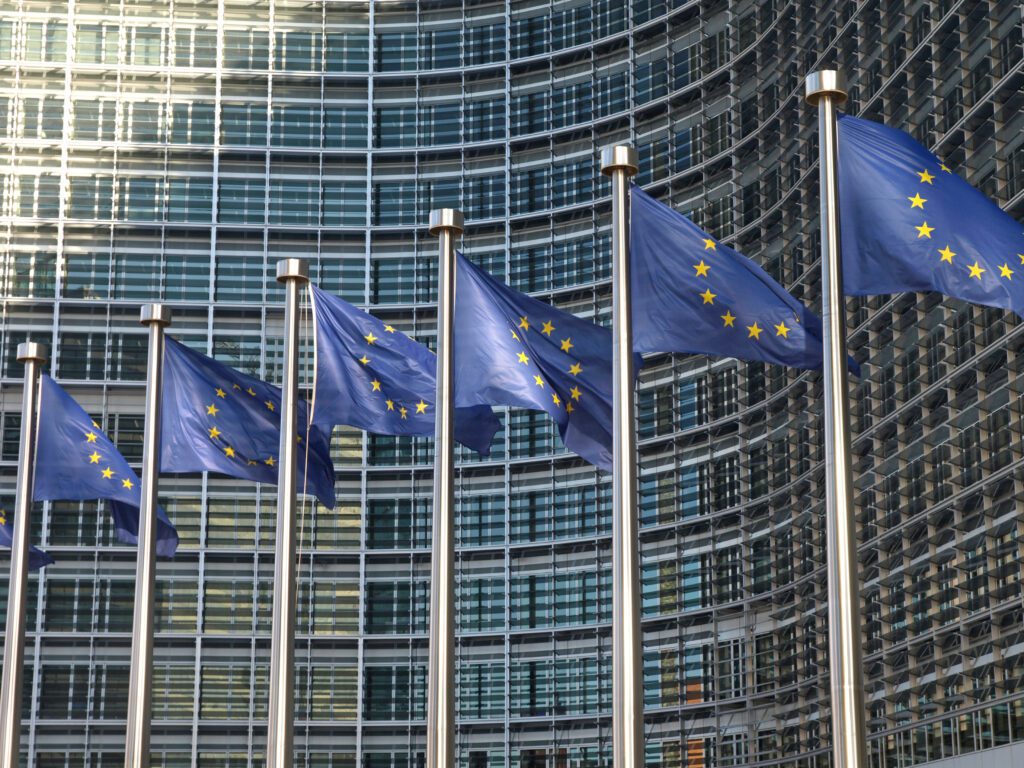
Eduard Stringer, director of product management for Europe at FIS, explains why he believes the EU needs to step up and ensure regulation supports the needs of payments businesses and consumers.
The FIS marketing slogan is: “Advancing the way the world pays, banks and invests”, but despite the best intentions of our marketing slogan, the real driving force in Europe comes neither from companies like FIS, nor from the European banks we service.
Before the turn of the century, when I wanted to transfer 500 Belgian Francs (BEF) to my mother’s bank account, my banker wasn’t ashamed to charge me BEF350 for that transaction. Just because there happened to be a Dutch-Belgian border between mine and her bank account. It was cheaper to drive 150 kilometres, pay her a visit, and pay the money I owed her in cash.
I guess I wasn’t the only one complaining about such experiences, because a little later the euro was introduced. As this bold move forward solved only half of my payment issue, the EU’s first Payment Service Directive (PSD1) also decided to knock down the barriers between all the existing domestic payment schemes by introducing the Single European Payments Area (SEPA).
This is what I call ‘advancing the way we pay’. Suddenly the same payment didn’t cost me more than a few cents.
Unfortunately, the four-corner model on which the SEPA payment schemes are based did show its limitations. It assumes only four ‘corner’ parties being involved in a payment: the debtor, the debtor’s bank, the creditor, and the creditor’s bank.
Although a sound foundation, it is rigid, because debtors and creditors had to rely solely on the payment instruments that their banks chose to provide.
Also, because we want to manage our lives with fancy apps, there was room for improvement. Again, it was the EU, with PSD2, which paved the way for banks and fintechs to advance the way we pay.
This directive intended to ‘open’ banking accounts, allowing app developers to introduce innovative payment instruments. It appeared, however, that banks had quite an advantage over fintechs, to say the least.
Only banks are allowed access to clearing and settlement mechanisms, and banks are not prohibited from denying the right to open a bank account to what they perceive as their competitors, the non-bank payment service providers.
It is about time the EU steps in again and advances a bit more on the way we pay. There is indeed no technological reason why every payment wouldn’t be processed instantly, why non-bank payment institutions would have a competitive disadvantage, why consumers can’t be protected more, why managing access approvals to your bank account would be more than a few clicks or swipes away.
Welcome PSD3 and the new directives on instant payments and on financial data access.
Eduard Stringer is the director of product management for Europe at FIS
The Payments Association
St Clement’s House
27 Clements Lane
London EC4N 7AE
© Copyright 2024 The Payments Association. All Rights Reserved. The Payments Association is the trading name of Emerging Payments Ventures Limited.
Emerging Ventures Limited t/a The Payments Association; Registered in England and Wales, Company Number 06672728; VAT no. 938829859; Registered office address St. Clement’s House, 27 Clements Lane, London, England, EC4N 7AE.







Log in to access complimentary passes or discounts and access exclusive content as part of your membership. An auto-login link will be sent directly to your email.
We use an auto-login link to ensure optimum security for your members hub. Simply enter your professional work e-mail address into the input area and you’ll receive a link to directly access your account.
Instead of using passwords, we e-mail you a link to log in to the site. This allows us to automatically verify you and apply member benefits based on your e-mail domain name.
Please click the button below which relates to the issue you’re having.
Sometimes our e-mails end up in spam. Make sure to check your spam folder for e-mails from The Payments Association
Most modern e-mail clients now separate e-mails into different tabs. For example, Outlook has an “Other” tab, and Gmail has tabs for different types of e-mails, such as promotional.
For security reasons the link will expire after 60 minutes. Try submitting the login form again and wait a few seconds for the e-mail to arrive.
The link will only work one time – once it’s been clicked, the link won’t log you in again. Instead, you’ll need to go back to the login screen and generate a new link.
Make sure you’re clicking the link on the most recent e-mail that’s been sent to you. We recommend deleting the e-mail once you’ve clicked the link.
Some security systems will automatically click on links in e-mails to check for phishing, malware, viruses and other malicious threats. If these have been clicked, it won’t work when you try to click on the link.
For security reasons, e-mail address changes can only be complete by your Member Engagement Manager. Please contact the team directly for further help.